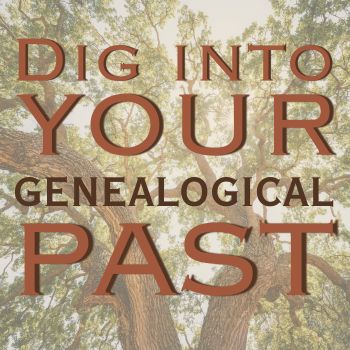
If you’re interested in genealogy, the Library can help! Check out the quick tips and research guides listed below, browse the Library’s collection of genealogy and history resources, and join us for several upcoming programs this month:
Thank you for your interest in this past event, survey, or contest. The information may no longer be up-to-date or active.
For current events, contests, and more, visit the home page
-
Genealogy 101: Register and join the Lake County Genealogical Society in person for an introduction to genealogy including examples of records and tips for documenting your research.
-
Genealogy Resources at the Library: Register and join us in person to learn about genealogy research tools available through Lake Forest Library, as well as Media Lab services to help you document your findings.
-
Pin Together Your Genealogical Past on Pinterest: Register and join genealogist Debra Dudek on Zoom to learn how to use Pinterest to sort, share, and promote your genealogical projects.
The National Archives and FamilySearch both have some great tips on getting started researching your family history. Here’s what they recommend:
-
Start with yourself. Document what you already know about your family and work backwards from there. Start by writing down everything you know about your parents, then your grandparents, and so on.
-
Talk to your relatives. It’s possible that someone else has already started compiling your family’s history, so it’s worth reaching out to see if anyone has research you can build on. Even if no one else has any research, it’s still a good idea to talk to relatives to find out family stories and other information that can be collected and preserved for future generations.
-
Begin at home. Look around your house for different documents, such as birth and death certificates, marriage licenses, newspaper clippings, military certificates, scrapbooks, letters, baby books, or photographs. These documents can provide valuable information and give you a good starting point for future research.
-
Focus on names, dates, places, and relationships. These are the four key items to find for each person when doing research, as they are important clues to identify your different ancestors and their relationships.
-
Try a small project to start out. When you first start researching your family history, it can quickly become overwhelming. Try keeping a narrow focus on just a few people to start with, to familiarize yourself with different research tools and websites.
-
Organize and save the information you collect. There are many different ways to organize your research, and over time you will develop a system that works for you, but it is important to make sure that all your research is properly stored and documented for the future. FamilySearch has a guide to organizing your files that may be helpful.
Check out these additional online guides and useful organizations as you get started on your family history journey:
-
BillionGraves: Search for information on gravesites by person or by cemetery; many entries include photos.
-
FamilySearch Center (Buffalo Grove, IL): Visit the local FamilySearch Center in Buffalo Grove for free, personalized research assistance.
-
Find a Grave: Search over 170 million gravesite entries, many with photos.
-
History Center of Lake Forest-Lake Bluff: Access local history resources, including photographs, telephone directories, maps, and information about local organizations.
-
Illinois Gravestone Photo Project: Browse over 103,000 gravestone photo records from across Illinois.
-
Illinois State Archives: Search online records, including birth and death, census, land sale, and military service records.
-
Lake County Genealogical Society: Access local genealogical information, including county histories, high school and college yearbooks, and funeral home records.
-
Lake Forest Library Resources: Access Ancestry.com, HeritageQuest, historical newspaper databases, and many other genealogy resources.
-
National Archives: Search census, military, and immigration records and review research tips for genealogists.
-
National Genealogical Society: Browse a list of 18 free websites to assist in your genealogy research.
-
U.S. Census Bureau: Discover information reported in the census from different years, and access copies of original forms and questions.